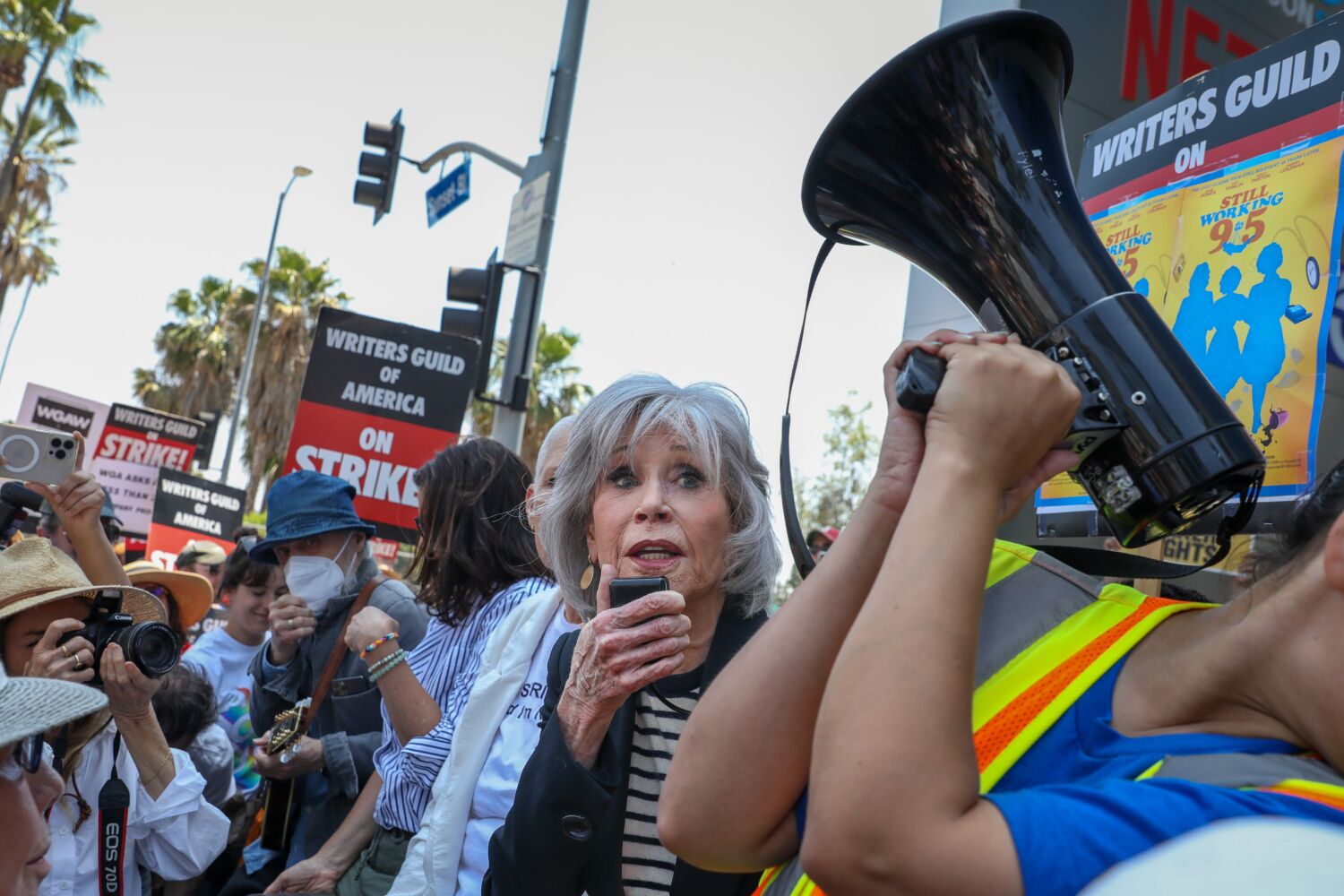SAG-AFTRA prepares for a possible strike as contract talks continue

SAG-AFTRA is taking steps to prepare for a possible strike even as the union continues down-to-the-wire bargaining with the major studios.
Hollywood’s biggest union and the Alliance for Motion Picture and Television Producers have made some headway in contract negotiations since both sides agree to extend the deadline to make a deal to July 12.
Despite progress, however, significant gaps remain between the parties and it was unclear late Friday whether they will be able to avert a work stoppage next week, said sources with knowledge of the talks who were not authorized to speak publicly.
The sources said negotiators were running out of time to bridge differences on a host of issues that have cropped up since negotiations on a new film and TV contract began June 7.
Among the major sticking points, SAG-AFTRA is demanding a significant boost in residual payments from streaming platforms to reflect the success of shows and how those payments are calculated.
Studios have balked at the demand from the union, particularly as success would be measured by a third-party firm and also because many of the platforms are not yet profitable.
An actors’ strike would be a major blow to the Hollywood studios and cause further upheaval for the film and TV industries that have already been roiled by a writers’ strike that began May 2.
While scripted production has largely ground to a halt in Los Angeles as a result of the Writers Guild of America strike, a walkout by actors would be more far-reaching, affecting production on sets worldwide.
In a sign of rising tensions, SAG-AFTRA on Thursday asked its members to complete a survey detailing how they would like to volunteer for possible strike duty.
“SAG-AFTRA may soon call for a strike — a work stoppage, to put pressure on AMPTP companies to give us a fair deal on new TV/Theatrical Contracts,” the union told its 160,000 members. “Part of waging a successful strike is picketing, where members peacefully protest outside of struck companies’ work locations to draw public attention to our cause, shut down production, and discourage strikebreakers.”
Representatives of SAG-AFTRA and the AMPTP, which represents Walt Disney Co., Netflix, Warner Bros. Discovery and other major entertainment companies in bargaining, declined to comment, citing a “media blackout” during negotiations.
The last time actors staged a strike against studios was in 1980. More recently, actors also struck over their commercials contract in 2000.
Last month SAG-AFTRA’s members voted to authorize the leadership — by an overwhelming 98% margin — to call a strike if a deal could not be reached.
The members have put heavy pressure on union leaders to hold the line in bargaining.
After SAG-AFTRA President Fran Drescher and National Executive Director Duncan Crabtree-Ireland initially expressed optimism about how negotiations were going, telling members last month that talks had been “extremely productive,” the response was swift.
Hundreds of actors, including A-listers such as Meryl Streep, Glenn Close and Jennifer Lawrence, delivered a blunt message, telling their leaders they were ready to strike if they could not secure anything less than a “transformative deal.”
“This is not a moment to meet in the middle,” they said.
SAG-AFTRA is pushing for an increase to minimum pay scales to combat the impact of inflation as well as an increase to streaming residuals — royalties paid on TV and films when they are rebroadcast. The guild also is asking for increased contributions to its health and pension plans as well as guardrails on the use of artificial intelligence.
High-profile actors including Jane Fonda have been vocal in support of striking writers, joining them on picket lines. This week, the union rallied its members to join the scribes outside Studio City’s CBS Radford studios.
For all the latest Entertainment News Click Here
For the latest news and updates, follow us on Google News.
